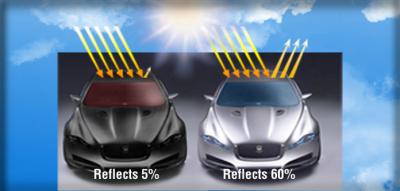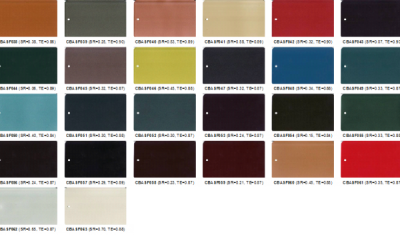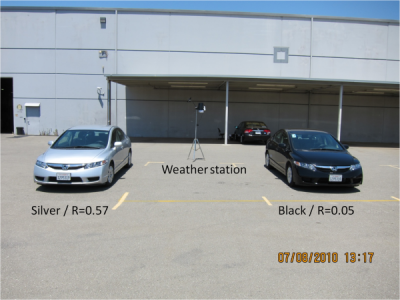Cool Cars
Cool Cars
The Cool Cars Project, sponsored by the California Energy Commission (CEC), investigates the benefits of using solar reflective cars.
About

Over 95% of the cars and small trucks sold in California have air conditioners. The use of air conditioning (A/C) in cars increases fossil fuel consumption and tailpipe emissions. This project aims to reduce A/C usage by lowering cabin air temperatures.
The Cool Cars Project, sponsored by the California Energy Commission (CEC), investigates the benefits of using solar reflective cars. By reflecting more sunlight than dark cars, a cool car shell reduces the amount of heat that is transferred into the car's interior. This results in decreased cabin air temperatures along with associated reductions in air conditioning, fuel consumption, and emissions of greenhouse gases and urban air pollutants.


Related Publications
2011
Levinson, Ronnen M, Heng Pan, George A Ban-Weiss, Pablo J Rosado, Riccardo Paolini, and Hashem Akbari. "Potential benefits of solar reflective car shells: Cooler cabins, fuel savings and emission reductions." Applied Energy 88.12 (2011) 4343-4357.